ICO Week: Here Are ICOs on Calendar This Week
Migranet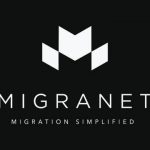
The platform will also have auto-updated regulations, policies and case laws to assist users in the application and processing. AI will, among other things, enable users to match their professional credentials and background declaration. The platform will address issues such as payment and therefore help migrants who do not have credit cards, experience high currency conversion rates, and who may otherwise experience delays in the transfer of funds and related to high banking fees. It will also feature the MIG token to be used for the payment of services on the platform.
The platform token MIG can also be used to pay fees for applications and residence related services.
Migranet will support ETH, ETC, POA, GO, VET and other tokens as well as be compatible with the ERC20 and ERC223 standards.
This Ethereum-based platform is hosting an Initial Exchange Offering this week starting on Thursday May 16 and ending on May 18, through the IDAX Launchpad.
The team is comprised of experienced businesses in the areas of global immigration, staffing, and relocation, as well as legal experts.
DataBloc
To use DataBlock, service providers download StoneFusion and list their available services on the DataBlock web platform while customers can visit the platform and select service providers based on their storage needs and data services that they require. They are able to select providers from a curated list based on their needs and they can then purchase the services from those providers they select.
The service will seek to solve a number of problems in data center based storage and service solutions. For instance, data centers continue to purchase more resources to cater for anticipated expanding of business, but only half of those data centers end up being utilized. It will allow data centers to optimize their capacity, for instance by selling their unused storage and compute capacity through the platform. By helping them to re-purpose their latent assets, smaller data-centers will be able to profitably compete with the likes of Amazon, Google, and Microsoft. This will also be achieved within a secure environment especially when handling sensitive data.
StoneFusion, which also supports encryption and additional security for data, will be hosted on a permissioned blockchain solution. This software is already in use outside of blockchain and over 2,000 enterprise customers have already fulfilled their data requirements using it including Microsoft, Disney, Wells Fargo, and U.S. Army.
The team has offices in Pakistan, Boston, Washington DC, San Diego and San Francisco.
DataBlock has been running a pre-ICO since February 1 this year and which ends on Wednesday will the ICO will start on Thursday, 16 May and end on June 16.
BOW (BT) ICO
Pre-ICO will run from May 15, 2019 — Jun 15, 2019 to June while ICO runs from July to October (Jul 15, 2019 — Oct 15, 2019).
This project is led by team that has previously worked with luxury brands. The CEO and Founder Aurore Petit, a graduate in the industry, worked for 5 years at Dior and later as a manager of a costume company as well as on her own project, Bowtie barber, before joining the BOW project.
Jean Jacques Sebbag, the partner of the Bow Token is currently the CEO of Swarovski France & VFB Lingerie.
AMMUT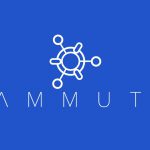
Ammut is a platform that is designed to provide a holistic model that can be applied in the solving of problems that require high computing power such as deep learning, cryptocurrency mining, scientific calculations CGI rendering, and 3D rendering.
The AmCU (Ammut Computing Unit) is being designed as a low-cost hardware platform that specializes in those tasks. The AmCU devices are connected to the network to make up the Ammut network. The client will be used to create tasks that can be sent to the network and this piece of software (client) will convert instructions into instructions that the devices can understand. These are the four (together with Ammut token) main components of the network.
The XAMM native token for the AMMUT Ecosystem will power transactions within the AMMUT Community including exchange of value with fiat and other crypto and payments within the platform.
The startup hopes to have a dedicated warehouse and equipment that will be used to process and manufacture the equipment. They will also form partnerships with suppliers and other companies to facilitate production and other activities necessary for them their customers. This warehouse and equipment is to be expected in the Q4 of this year. However, they hope to release Mainnet and beta software for feedback in Q2 of next year alongside a mobile app that will be used to monitor and control the AmCU.
The production of the AmCU is to begin during Q3 of next year as well as the release of the first version of the software.
The native token to be sold via ICO will also have a buyback program applied, which will improve demand of the tokens.
The Project Manager of the Ammut Network, Charlie Blake, has a history in the accounting field and is skilled in COM+, E-commerce, Computer-Aided Design (CAD), Bitcoin, and C++. Strong business development. Melissa Alexander, the project Software Developer is an experienced software engineer who has demonstrated history of working in computer software industry. She is skilled in Bitcoin mining, integration, inventory management and strong engineering background. Brian Ferguson is the Hardware Architect at Ammut and he is an experienced Blockchain Consultant who has worked in information technology and services industry, skilled in Domain-Driven Design (DDD), Hybrid Fiber-Coaxial (HFC) and has strong engineering background.
Others include Naviin Kapoor, who is Blockchain & ICO consultant, Frederik Lund who is the project's advisor on legal matters, and Andy Veiss, who is an ICO advisor.
The ICO started on Mar 1 and is on-going until Jun 1.
ParamountDax
ParamountDax wants to be a cryptocurrency exchange that provides a sophisticated trading platform with an intuitive interface, instant liquidity, and multilingual and real-time customer support with an overall, secure and risk-free trading experience.
With Paramount, customers will be able to manage all their digital assets together, access instant liquidity, and trade at minimal fees. It will also support Over-the-counter (OTC) trading enabling transaction of large amount of crypto without necessarily requiring escrow or a lawyer. It will feature a trade indicator that tells of any real time profit/loss data to help with decision making, 46% profit sharing, feature different order types including stop limit options, stop loss orders and others to enable traders to make necessary decisions.
Key features are Daily Profit which means the holders and supporter sof the exchange will earn a daily profit gotten from 46% of all trading fees charged by the platform, and paid as bonus reward to the PRDX. With Trade From Chart feature allows traders to execute trades directly from the chart; while the Easy Trade allows traders to trade limitlessly, features a custom trade indicator that tracks and assists with real-time and accurate profit/loss data.
Risk-free is a feature designed to allow risk management in compliance with financial regulations and enhanced security; Strong Referral is based on the 3 Level Invitee and will reward users for inviting others; and Advanced Customer Care is a feature that allows customers to access 24/7 customer care service in different languages.
The startup wants to raise the current transaction throughput from 10,000 transactions/second to 2,000,000 transactions/second by adding cloud and hosting and load balancing of each blockchain node separately into the network.
It will also feature an API, designed to connect third parties.
The project's pre-ICO will happen from May 18, 2019 — Aug 20, 2019 and ICO date is slated to begin on June 24th, 2019.
NGS-Coin (NGS)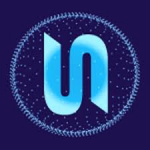
New Generation Security (NGS) is an Ethereum-based platform built for startups, to help accelerate start-up companies by providing a fund-raising interface that allows them to launch and manage crowdfunding and campaigns while investors can use the platform for investing in a variety of methods including through P2P loans, crowdfunding, etc. Investors can also determine direction of the investment by way of voting.
It supports cryptocurrencies, fiat currencies, traditional assets, and digital goods. Other features include up to 2% of NGS cashback on all transactions.
The token will be exchangeable for Bitcoin, Ethereum and 100+ cryptocurrencies.
It will work as a decentralized encrypted database service with a network of independent nodes
The platform idea originated in June 2018, attracted $ 350,000 investment last year, when also a pilot application was developed. They intend to integrate NGS API with other partner applications in September this year when they will also release the beta version. The startup will release the platform and wallet in November this year and integrate a Cyber protection services API.
Pre-sale will start from May 20, 2019 and end Jul 21, 2019 while ICO starts on Aug 05, 2019 to Sep 09, 2019.
Elrond Network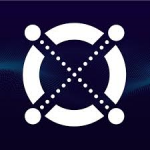
Elrond Network is a blockchain platform that utilizes Adaptive State Sharding and Secure Proof of Stake (SPoS) for scalability solution while while preserving security and decentralization. It eliminates the PoW energy and computational waste, as well as supporting interoperability of blockchains and dApps (cross-chain interoperable).
It targets having a transaction throughput of 10k tx/sec, as well as minimal latency and negligible fees. The scalability problem is solved by having the throughput increase linearly with the number of shards and validators in the network. Sharding, also known as horizontal partitioning and inspired by traditional concepts of database optimization, divides data into several pieces placed on different environments to be processed. It divides the network into shards to ensure that more transactions, are processed, verified, and validated simultaneously.
Thus, each sharding is effectively introducing a certain degree of parallelism. There are three types of sharding: network sharding which is a process of grouping the nodes into shards. Transaction Sharding deals with distribution of transactions across different shards, but all the nodes keep the entire blockchain into their state. State sharding is more sophisticated and is described as a mechanism that allows different shards to deal only with a portion of the state without replicating the data between nodes from different shards. Unlike Zilliqa and other blockchains, it uses not only transaction sharding but also state sharding. It also eliminates the PoW mechanism and uses SPoS for overall consensus.
The Elrond Virtual Machine will enable the decentralizing of cross-blockchain operations by having cross-chain interoperability implemented at the Virtual Machine level using an adapter mechanism. Each chain that is non EVM compatible will require specialized adapters.
The startup has a working prototype that has implemented state sharding architecture and cross-shard transactions.
The project's pre-ICO started on April 1 and ended on April 15, 2019, while its' ICO started on April 15 and will end on May 15.
Solismea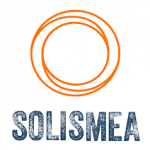
Solismea is a Ethereum blockchain-based low-energy cost and eco-friendly way of mining cryptocurrency in order to keep minimal carbon footprint and maximizing efficiency. The ecosystem will have users mine cryptocurrencies with GPUs with solar energy. GPU miners will also use a power system that depends on batteries instead of a traditional power grid.
With Solismea, those who sign mining contracts will be able to manage and monitor them or even mine using a smartphone app.
Their ICO started on May 1, 2019 and will conclude on May 31, 2019.
i-chain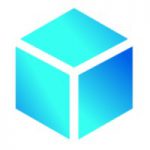
i-chain is a blockchain-based insurance platform that will automate insurance business for purposes of ensuring transparency, cutting down costs, and to offer customers tailored insurance products at lower prices. With the platform, insurance companies can develop and sell insurance products on the platform. Micro-businesses will be able to provide tailored services such as call centers in specified language and expertise in certain areas. Individuals can also provide services such as being insurance brokers, emergency commissioners, and many more.
Global and independent software developers can also offer their applications and services to insurance companies on the internal marketplace that will be similar to the APPstore.
The ICO is ongoing and will end on May 16.
Next Generation of Exchange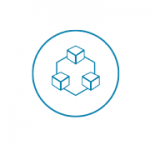
Next Generation of Exchange (Negexc) is a cryptocurrency exchange that will, in addition to having ordinary trading features, have chat rooms in which users can share information and directly connect with each other related to all exchange activities.
With its' Fast Response Support service, representatives will be able to quickly resolve and accept user requests within 24 hours.
eSwitch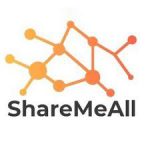
eSwitch is a marketplace that aims at facilitating a sharing economy where users are able to use a blockchain-based platform to share skills, as well as goods and services, and home products.
The ICO started in January and will conclude on May 15.
GoFind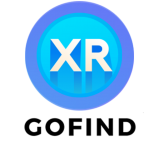
GoFind is a decentralized protocol for Spatial Extended Reality (XR) apps built for Internet of the 3D physical world. Extended Reality is intended to be another location-based digital internet layer on top of the earth and connected with earth's geolocation coordination. That web is connected to geo-cordinates. Since VR can be used to build immersive apps and dApps, Extended Reality Web or the XR Web is based on VR connected to geolocation for more real-world experience.
GoFind intends to promote development of the new kind of internet called XR-Web on the blockchain, building core platform tools and infrastructure. It will be built on a blockchain.
Extended Reality can currently be experienced using Gofind’s XR Browsers for iOS and Android phones and other XR Browsers but in future, it could be an integral part of smart glasses according to the company's whitepaper.
Therefore, they are also building an Extended Reality Browser for iOS and Android smartphones and smart glasses that will look just like normal sunglasses and may become our next computing platform.
On the platform, anyone with XR tokens will be able to lease parts of the XR Web connected to geolocations. Holders also get part of the revenue whenever advertisement or other transactions happen on the XR Web.
The pre-ICO will take start on May 20 and together with the ICO, will run until Aug 15.
Pieta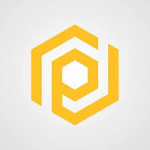
The Pieta network is a unique blockchain project that encourages and promotes the use of solar energy in blockchain mining and other related industries worldwide. The project aims for this to have the effect of reducing the cost of crypto mining and power consumption in the mining process such that it is possible to protect the environment from continued excess carbon release.
It uses a new algorithm called the X20 algorithm for that purpose. All in all, its' overarching goal seems to be to make the mining of cryptocurrencies affordable for everyone.
The ICO concludes this Tuesday.
Other ICOs happening this week include Bither, Bitshares-Media, MenaPay, IDAP, ISG, and PCC, among others.


